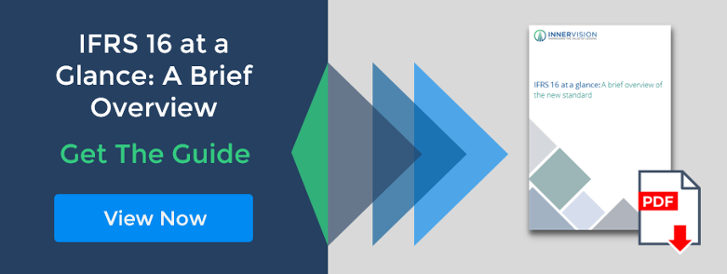How to Find the Perfect Work-Life Balance as a Finance Professional
Updated 12th May 2021 | 6 min read Published 21st March 2018


Work-life balance - the ongoing attempt to try and find the perfect balance between your career, and other facets of your life, seems to have become more difficult to achieve over the last few years.
One of the biggest factors affecting the achievability of this balance is the rate of technological advancement, which has muddied the waters of what constitutes personal time and work time.
The finance industry, in particular, is infamous for being one of the hardest careers in which to achieve a decent work-life balance. These high-pressure levels and extraordinarily long hours can have a negative impact, not just on employees’ family relationships and personal lives, but also on the quality of their work and performance. The more progressive financial institutions have implemented rules and regulations to encourage shorter, more productive working hours. However, this hasn’t fully changed the nature of the industry.
Employers and employees have to work together in order to encourage and implement meaningful changes that actually manifest in having a better work-life balance as a finance professional.
The Current Work-Life Balance In The Finance Industry
It’s no secret that the work hours in the finance industry are gruelling; for example, 1 in 3 financial analysts regularly spends between 50 and 70 hours at work a week. However, this varies hugely between different departments, companies and job specs; equity research teams usually work between 70 - 75 hours a week, whereas those in corporate finance can regularly log as many as 90 - 100 hours each week.
In 2013, an intern working at the Bank of America tragically died after working until 6 am three nights in a row. After this horrendous occurrence, a number of rules and regulations were implemented in financial institutions all over the world to encourage employees (especially juniors) to work regular hours. However, it’s been almost impossible to determine the success of these regulations, as most juniors in the finance industry willingly work long hours in order to gain promotion, and in some severe cases, to avoid termination.
Those in higher rungs of the organisation are more likely to determine their own working hours, but they still work according to the factors that will benefit the company, and this could mean 100-hour work weeks in some cases. Junior employees are at the most risk of burning out, and despite the lack of policy officially governing the incredulous amount of work hours, many will continue to work late nights and weekends in order to get recognition within the company.
This failure to find the perfect work-life balance as a finance professional means that the industry has a divorce rate of 33.891 % according to Quartz. In his article Banker’s Wife, Joris Lurendijk gives us a glimpse of what it is like to be married to a high-level banker, and although this wife, in particular, was attuned to the long hours due to her experience as a lawyer, she still stated: "The world of finance is a way of life. I also know men in corporate law who were on a conference call when their wives went into labour. And trust me, they did not come out of that call until they had finished. That sort of thing happens in finance too, you either play the game or you sit on the sidelines. Nobody at my husband's bank with a certain level of responsibility knows how many days' leave they have for the rest of the year; nobody uses them anyway. There's no such thing as 'today, closed for business', and using an 'out of office' is not done.”
How To Achieve Work-Life Balance As A Finance Professional
The work-life balance as a professional in the finance industry may seem like a myth, however, there are a number of small changes that can make a positive impact. These are just some of the decisions that high-ranking finance professionals advise when trying to achieve the work-life balance:
Decide What A Win Is To You
Having the perfect work-life balance is different for everyone, and it will certainly depend on whether you have a family, or you’re single and what kind of lifestyle is important to you. If you have a family, there will come a time where you have to decide on what constitutes to a success; is it making an extra 20k a year, or is it making it to your son’s matches on a Saturday? Is it landing that big client or taking your daughter to a riding lesson?
Once you decide what a win is for you, it will be easier to make the decisions most likely to impact your version of a work-life balance.
Manage Technology
The growing capabilities of technology means that we are almost always connected, and this creates a problem when trying to “switch off”. You need to create boundaries on where, when and how you check in with work and stick to them; if you are constantly connected, you will essentially never leave your work behind.
Setting boundaries like not checking your emails at the dinner table or making sure you watch that football game or recital without taking your work calls, is the best way to ensure you are giving your family the undivided attention that is so imperative.
Get Support
One of the most common pieces of advice from professionals that have successfully achieved the right balance is creating a support network and getting help when you need it. Small changes such as hiring someone to do your groceries for you, or a house cleaner for the chores; getting this help is not as much about admitting that you aren’t a superhero but more about freeing up your time from doing menial tasks so that you can focus on important things like your health and your family.
A positive work-life balance doesn’t just impact your personal life, but also your work, and luckily progressive companies are starting to take notice of this. Some financial institutions are implementing support groups and flexi-hour schemes to ensure that their employees get the time that they need with their families.
After all, a happy, healthy employee is going to be far more valuable when it comes to productivity, loyalty and quality of work than an overworked, exhausted one. So, it makes sense for companies to look after their staffs’ work-life balance too.
So, while achieving a work-life balance as a financial professional may seem to be like hoping to see a unicorn, if employers can foster a culture of work-life balance within their companies it doesn’t need to be out of reach. Employee benefit schemes combined with personal boundaries are more likely to result in higher productivity, lower absenteeism and decreased turnover – which is the best outcome for everyone – employees, employers and family alike.
Check out the rest of our blog for up-to-date news and trends, and more information on how to excel in the finance and accounting industry. It’s filled with helpful advice on everything from lease accounting best practices to more specific articles on getting ready for IFRS 16. If this change to the way we account for leases is causing strain on your work-life balance currently, ease the pressure by downloading a free guide on the changes and distributing it to your colleagues so that the burden is at least shared.






